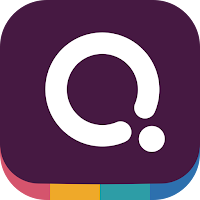Week 9: Habitica
My husband is a special education teacher at the elementary school in Wrangell. He was recently raving about a goal-setting website called Habitica. It’s a program that incorporates a role-playing game (mostly text-based). It’s engaging and fun, and seems like a good way to set long and short term goals. He and I talked about the different applications of this kind of tool, especially in behavior modification.
The basic idea is that you set goals for yourself, in the form of daily tasks, long-term habits, and short-term projects in order to power up a game character. This is primarily a text-based roleplaying game that includes quests, treasures, monsters to defeat, and teams to form. Players earn gold toward rewards or better equipment for their character. When you complete a goal, you earn experience points to reach the next level, and you earn gold to later buy rewards. With higher levels come higher in-game challenges. Experience is entirely earned through completing real-life goals. The game is available for free, with in-game content available for purchase to support the developers. Additionally, sign-in can be done through google.
He began using Habitica with one of this students who is a big gamer but also has some behavior challenges. The student would, for example, use inappropriate volume in class, yell at the teacher and other students, refuse to do work. He is also fairly rigid in his thinking, gets upset when routines change, but wants to improve his behavior. When my husband presented the program to him, the student was excited to give it a try, as long as he could use the gold to buy iPad time at home. They agreed to try it, and the student’s mom said he could earn iPad time that way.
Two weeks later, the student was keeping his volume down in class consciously and talking about it, he was working with fewer reminders, and was helping my husband to track his own progress. It has been a good experiment, and the student bought in almost immediately. Using the program, he and his teacher are modifying and setting new goals.
The basic idea is that you set goals for yourself, in the form of daily tasks, long-term habits, and short-term projects in order to power up a game character. This is primarily a text-based roleplaying game that includes quests, treasures, monsters to defeat, and teams to form. Players earn gold toward rewards or better equipment for their character. When you complete a goal, you earn experience points to reach the next level, and you earn gold to later buy rewards. With higher levels come higher in-game challenges. Experience is entirely earned through completing real-life goals. The game is available for free, with in-game content available for purchase to support the developers. Additionally, sign-in can be done through google.
My husband immediately saw the potential of this tool for behavior intervention with some of his students. It is highly engaging, incorporates short and long-term goals, and allows students to be involved in setting, checking the progress toward, goals. The tracking is all done online, and the computer calculates the point value for each goal based on the difficulty of the task that the player assigns.
He began using Habitica with one of this students who is a big gamer but also has some behavior challenges. The student would, for example, use inappropriate volume in class, yell at the teacher and other students, refuse to do work. He is also fairly rigid in his thinking, gets upset when routines change, but wants to improve his behavior. When my husband presented the program to him, the student was excited to give it a try, as long as he could use the gold to buy iPad time at home. They agreed to try it, and the student’s mom said he could earn iPad time that way.
Two weeks later, the student was keeping his volume down in class consciously and talking about it, he was working with fewer reminders, and was helping my husband to track his own progress. It has been a good experiment, and the student bought in almost immediately. Using the program, he and his teacher are modifying and setting new goals.
A program like this has great potential to help students manage behaviors and with other goal setting needs. Additionally, it’s engaging and in the form of a game so the students are familiar and bought in enough so progress may come faster. For the teacher, it is a labor-saving device; instead of sitting down and building the entire system, teachers can just concentrate on goal-setting and interventions exclusively.
Resources:
Ryan Howe (My wonderful husband)




What a great tool for Special Education! I love work plan especially if students are given the autonomy to self regulate their expectations. The fact that the kids were so engaged to see a concrete improvement after two weeks speaks volumes about the resource. Thanks for sharing.
ReplyDeleteThat sounds amazing! I have a student who would benefit from this type of gaming program. Redeeming points for tangible rewards is amazing. The student I have in mid would LOVE this. I like that your husband was able to use this for one student and the program didn't require that the entire class participates. Thanks for sharing.
ReplyDeleteThis sound really useful. Versatile, too. Nice blog.
ReplyDelete